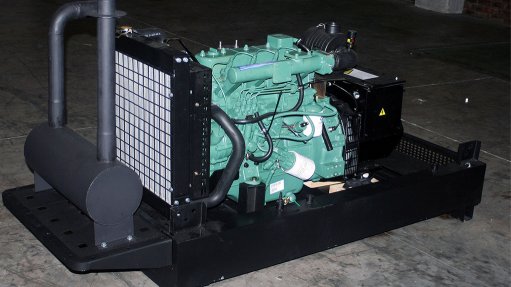
Local genset manufacturer, Zest WEG Group believes that those involved in the purchasing decision as well as the end-users of standby power generation systems need to apply more attention to engine selection during the specification process.
Louis Kotze, chief operating officer at Zest WEG Group Generator Set Division, says that with the increasing call for gensets in standby power applications it is necessary for specifiers to fully understand the operational requirement of these units, and then apply this knowledge to the engine selection.
“An area where cost savings can be achieved without impacting on the reliability or operation of a standby genset is the engine,” Kotze explains. “An engine in a standby power application will run for limited duration during power outages, yet we often see tenders requesting top-of-the-range premium brand engines that are completely over-specified for this function. Not only is this a waste of capital expenditure but it could also affect the operating costs.”
Kotze says it is far more prudent to allow the genset original equipment manufacturer (OEM) to assist in advising and specifying a fit-for-purpose engine. He explains that the engine in a standby genset would have an estimated run time of 250 hours per year with a maximum of 80% average load factor.
He says the resistance to engines manufactured in Asian countries is largely a thing of the past. “The last five years have seen majority of the leading global engine OEMs invest in or partner with manufacturing facilities in the East, and this has resulted in lower cost units being produced to OEM specification under exacting quality standards,” he says.
These engines are now largely supported by locally based South African representatives or agents, which assures end-users of sustainability and access to parts over the long term. Both will ensure reduced total cost of ownership.
Another important point that must be kept in mind is that the genset OEM and not the engine supplier will carry the warranty for the engine.
Kotze reiterates that for this reason it is important to deal with a reputable genset OEM that has the necessary technical expertise and knowledge as well as the financial stability to support the product once it is in the field.
Zest WEG Group operates an extensive genset manufacturing facility in Cape Town and can supply standby power solutions in stationary or mobile configurations from 10 kVA up to 3 350 kVA. Kotze says the capacity can be increased upwards with multiple synchronised sets.